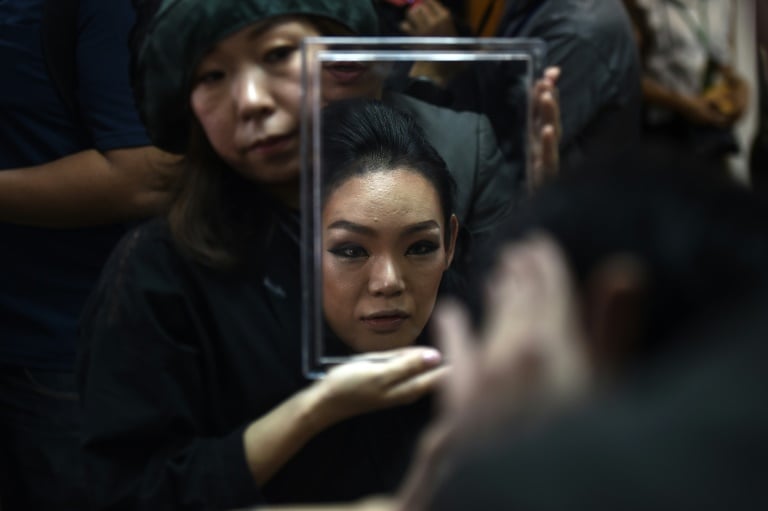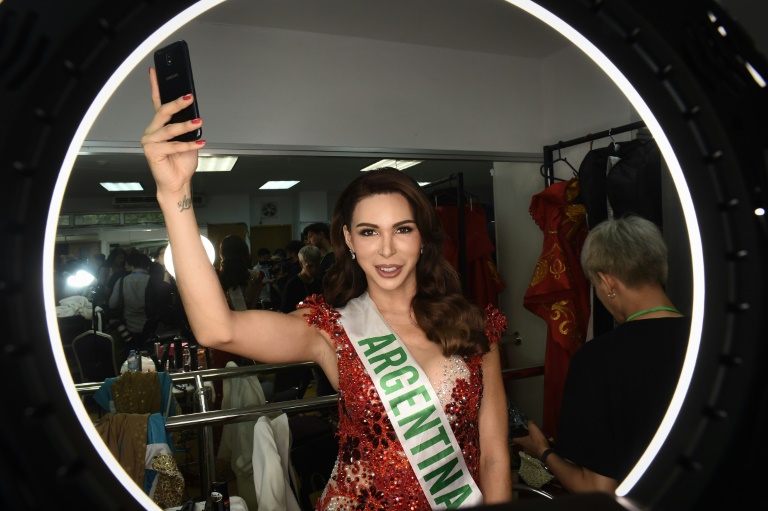Vietnam's Nguyen Huong Giang was crowned "Miss International Queen" in Thailand on Friday at one of the world's top beauty pageants for transgender women.
The red-dressed winner fended off 26 competitors, from countries spanning Mongolia to Mexico, to clinch the coveted crown in the seaside town of Pattaya, where the popular contest has been running since 2004.
While the competition is fierce, contestants say the pageant also offers an opportunity for camaraderie among trans women who hail from different backgrounds but share similar stories of discrimination back home.
Ahead of the coronation late Friday, the diverse group of competitors packed into a bustling dressing room to lacquer on lipstick and primp their hair as an army of stylists buzzed around them.
“This is my first international experience of coming to pageant where it is really a big exposure to all my trans sisters all over the world,” Nitasha Biswas, from India, told AFP after making the final adjustments to a sparkling beige dress.

Yuko of Japan gets ready in the dressing room before the final round of the Miss International Queen 2018 transgender beauty pageant in Pattaya
Thailand’s relatively open-minded attitude on LGBT issues also offers a refuge for contestants who hail from less tolerant countries, including neighbouring Myanmar.
“Myanmar is a developing country so there is still only a small amount of transgender people,” Juana Paing, a contestant from the poor and conservative nation, told AFP.
“I want to try my best for Myanmar to be more open for transgenders,” she added.
Thailand has a large and visible transgender population and is one of the world’s top destinations for sex-reassignment surgery.
Yet some segments of society remain deeply conservative.
Despite high levels of education, many transgender people struggle to secure full-time work in professions outside the entertainment and sex industries.

Sofia Solohaga of Argentina poses in the dressing room before the final round of the Miss International Queen 2018 transgender beauty pageant in Pattaya
Same sex marriage is also still not legally recognised, and up until 2012, transgenders were considered mentally ill by the army.
Vietnam, where this year’s pageant winner hails from, has seen a growing LGBT scene in recent years while its communist government is drafting a landmark law that could allow some trans people to legally change their gender.
Joe Wong, who works with the advocacy group Asia Pacific Transgender Network (APTN), applauded contests like “Miss International Queen” as a “powerful medium to showcase the challenges, talents and hopes of trans people”.
“I’ve learnt from others that contests like these create sisterhood and bonds,” he told AFP, adding that the pageants would however benefit from a more inclusive definition of beauty.






